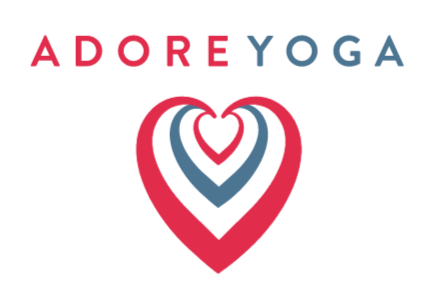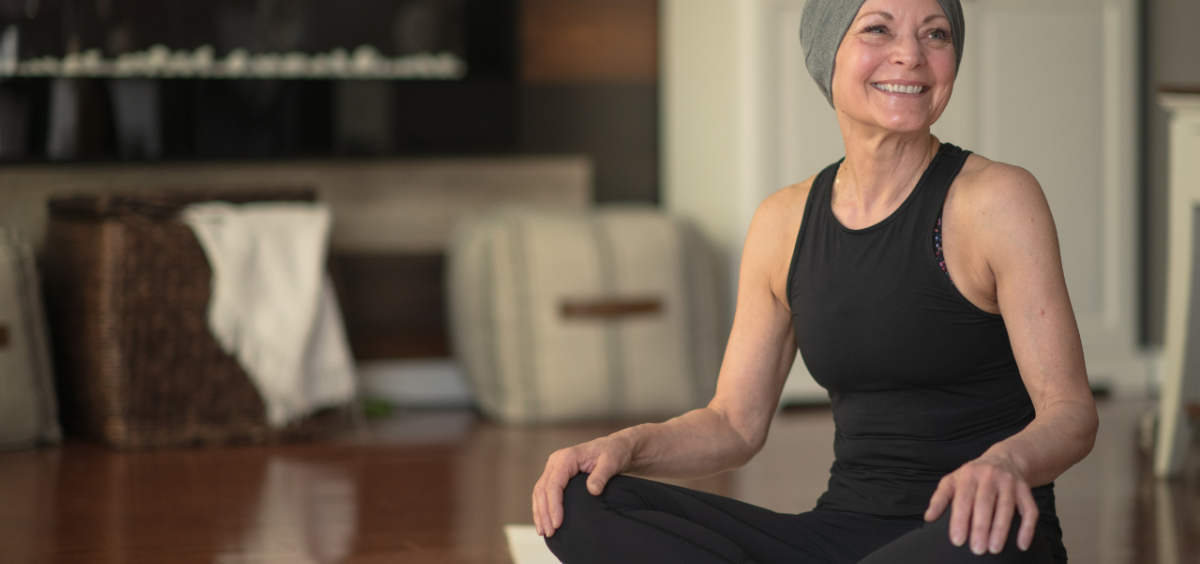Yoga for Cancer Related Fatigue (CRF)
Beating cancer is certainly something to celebrate. While one in two Australians will experience a cancer diagnosis during their life, overall cancer survival has improved dramatically thanks to better treatment protocols. 70% of all people diagnosed with cancer in Australia survive for at least five years after diagnosis - that's up from 51% about 30 years ago (AIHW).
Getting the all-clear after going through treatment for cancer is often a time of enormous relief, but beating cancer doesn’t mean that everything goes back to being exactly the same as before diagnosis. For many people, the physical and psychological impacts of their cancer experience continue long after treatment finishes. This is where yoga can help.
Yoga can’t cure cancer, although there is plenty of evidence that it can help people manage the symptoms of treatment. What yoga certainly can do is help cancer survivors manage the challenges of life after treatment.
The challenges of cancer survivorship
For many cancer survivors, the end of their treatment brings a new set of challenges. The impact of diagnosis, the physical effects of treatment and the psychological shifts that can take place when dealing with a potentially life threatening disease all take their toll. Returning to the rigours of daily life can be daunting, making it difficult to move back into the workplace or step back into family roles.
Cancer related fatigue
Compounding the challenges of readjusting to life after cancer is Cancer Related Fatigue (CRF). CRF is a debilitating condition that affects 30-90% of cancer patients and can impact on work, relationships and quality of life (Djalilova et al., 2019) for years after their treatment finishes.
People with CRF can experience low energy, muscle pain and trouble concentrating. Unlike regular fatigue, CRF doesn’t go away with rest or sleep. It’s an ongoing experience of physical and mental exhaustion that can get in the way of completing even simplest day-to-day tasks.
Yoga and Cancer Related Fatigue
Studies have shown that yoga can help with CRF. There is now good evidence that yoga therapy can have a large effect on fatigue in cancer survivors (Dong et al., 2019). The authors of a recent randomised controlled trial were so convinced that yoga was effective in treating CRF that the authors recommended oncologists prescribe yoga to cancer survivors for treating CRF and sleep disturbance (Lin et al., 2019).
The good news is that therapeutic yoga is now being taught in a number of cancer facilities. In Sydney, the Kinghorn Cancer Centre and the Chris O’Brien Lifehouse both offer weekly classes. Cancer Council NSW offer a yoga and meditation workshop as part of their ENRICHing Survivorship program, offering cancer survivors with evidence based skills for managing fatigue.
What kind of yoga supports people with CRF?
There is strong evidence to support the use of exercise for CRF (Hunter et al., 2017). However, the yoga postures (asanas) that are offered to people experiencing CRF should be tailored to their individual needs. For example, the yoga classes provided by Adore Yoga at cancer facilities are often attended by elderly students, those with disabilities and people with significant health issues. While moderate intensity resistance exercise has been shown to be helpful in managing CRF (Brown et al., 2011), the level of intensity has to be appropriate to the capacity of the students.
It is helpful to have chairs and other props available when teaching cancer survivors. Many students at cancer facilities have trouble getting up and down off the floor and so the majority of the practices are done seated on a chair, or using chairs for balance and support in standing poses.
Yoga teachers working with cancer survivors with CRF usually modify their classes according to the needs of their students on the day. While class planning is important, having a tightly choreographed practice can get in the way of responding to student needs. It’s also helpful to let students take the lead, modifying the practice to suit the student rather than trying to prop or adapt the student’s body to fit the practice.
Beyond the poses
There is much more to yoga for CRF than physical movement. The physical and psychological load of cancer diagnosis and treatment can be profound and yoga can offer many effective tools to help reduce long held physical and psychological tension.
Techniques such as extending the exhalation, either through gentle dynamic asana or pranayama (yoga breathing), directly impact the autonomic nervous system (Sakakibara et al., 1996). Focusing on lengthening and smoothing the exhalation dials down the sympathetic nervous system response (‘fight or flight’) and triggers the parasympathetic nervous system (‘rest and digest’).
Deep relaxation practices such as Yoga Nidra can ‘reprogram’ engrained patterns of tension while simple meditation techniques can calm the mind and provide respite from the anxieties, including fear of cancer recurrence, that many cancer survivors experience.
Finding the right yoga teacher
Yoga has many techniques to support the management of CRF and a skilled Yoga Therapist will tailor those techniques to meet the needs of different students. It’s a good idea for cancer survivors with CRF to check that the yoga class they intend to join is suitable for them (some types of yoga may be unhelpful). Teachers offering yoga for CRF should be well trained in therapeutic yoga and have experience working with students who have experienced cancer. Contact Yoga Australia for a list of certified Yoga Therapists.
Learn more about Yoga Therapy with our mini eCourse - get it here!
References
Djalilova, D., Mandolfo, N., Berger, A.M., Cramer, M.E., 2019. Policy analysis of access to and reimbursement for nonpharmacologic therapies for cancer‐related fatigue. Public Health Nurs phn.12615. https://doi.org/10.1111/phn.12615
Dong, B., Xie, C., Jing, X., Lin, L., Tian, L., 2019. Yoga has a solid effect on cancer-related fatigue in patients with breast cancer: a meta-analysis. Breast Cancer Res Treat 177, 5–16. https://doi.org/10.1007/s10549-019-05278-w
Lin, P.-J., Kleckner, I.R., Loh, K.P., Inglis, J.E., Peppone, L.J., Janelsins, M.C., Kamen, C.S., Heckler, C.E., Culakova, E., Pigeon, W.R., Reddy, P.S., Messino, M.J., Gaur, R., Mustian, K.M., 2019. Influence of Yoga on Cancer-Related Fatigue and on Mediational Relationships Between Changes in Sleep and Cancer-Related Fatigue: A Nationwide, Multicenter Randomized Controlled Trial of Yoga in Cancer Survivors. Integr Cancer Ther 18, 153473541985513. https://doi.org/10.1177/1534735419855134
M Sakakibara, Hayano, J., 1996. Effect of Slowed Respiration on Cardiac Parasympathetic Response to Threat. Psychosomatic Medicine 58, 32–37.

